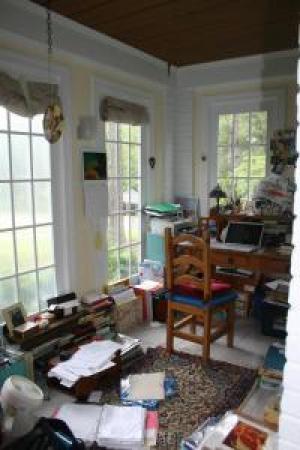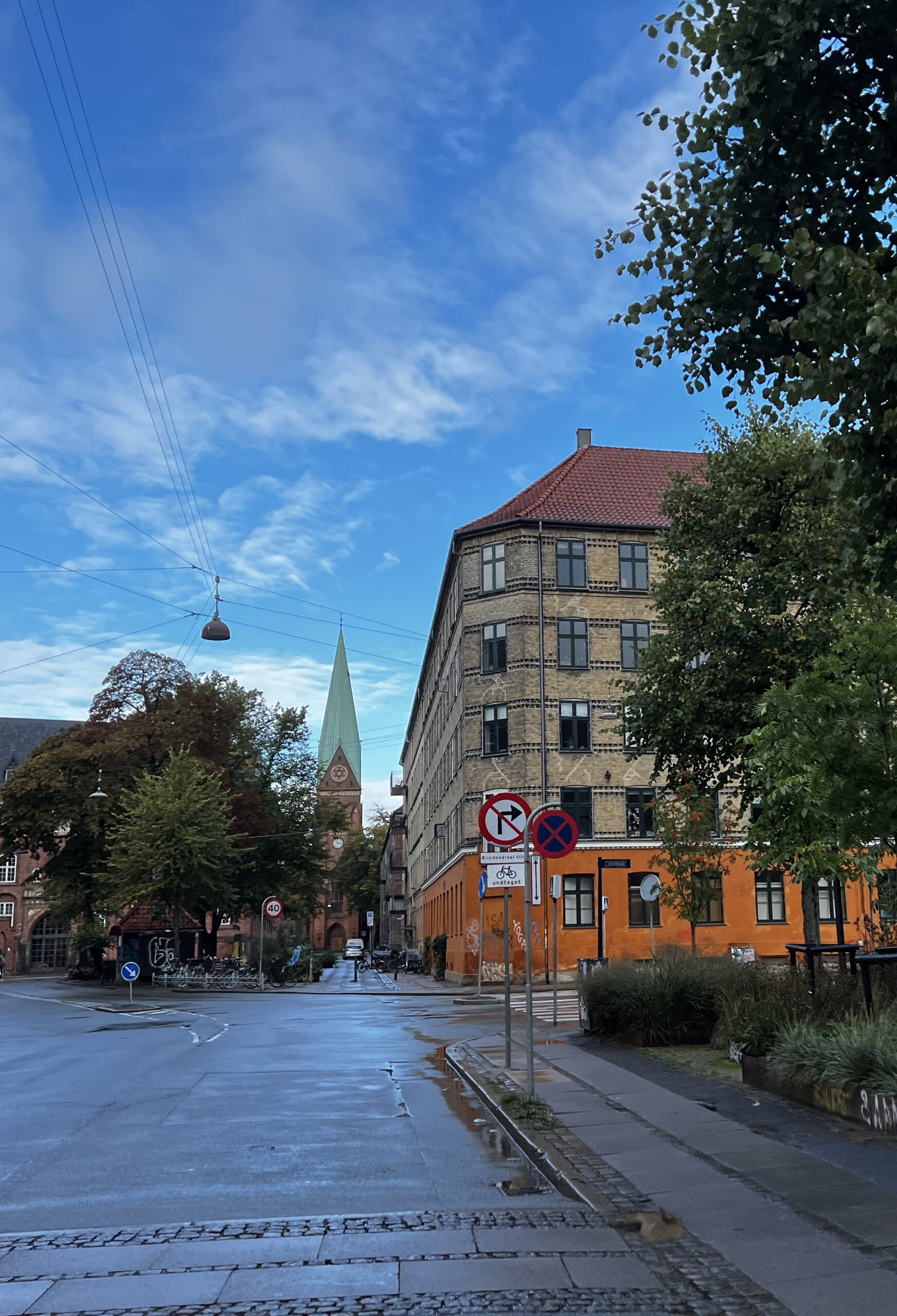Writing in Place is a column in which authors published in our print and web pages tell us about their writing spaces.
I write in a glass-sided room, an addition to a 1950s brick bungalow, southern style. From the threshold that once led to the outdoors, it’s just one giant stride to my desk: space enough to tap at a keyboard, or lie down; for books and papers to breed, but not for dancing (a tiny tango when someone says yes). The door opens with a ghastly sucking. Then I’m in, most mornings greeted by some spirit helper jumping for cover—kukulcania hibernalis, tiny crevice weaver, or zygoballus sexpunctatus, trapdoor spider. Sometimes, it’s the cockroach, unholy scarab, too parched to outrun the descending whomp of the Gladware, the fatal thwop of the vacuum.

I sit wrapped in light, around me six long windows and a glazed door. A bird might slam up against the panes if it weren’t for the cheap, crossword-style dividers that slot three across, five down: sky, sky, tree; sky, tree, squirrel, squirrel, sand.Or, from the critters’ perspective: giant/ hunched/ over/ glowing/ carcass.
Those panes and panels were new when we first moved here (angry, hot). The glass is fogged now by condensation, some devious sprite huffing its breath between the double panes at night, or while I’m working, my back turned. Looking forward, my view is mostly obstructed by the desk’shigh hutch and effluent towers: pictures of husband and children, all smiles, and Venus rising from her shell. Stretched tall, I can see one-half of the dogwood: when it blooms, nothing finer. The cruciform petals with their tiny stigmata are Christ’s passion made arboreal, the locals say.
When the storms come pounding, they tear the blossoms down; in the next hour, not a whisper. I hope that the branches fall the other way. Afterwards, I can see in the driveway the litter from the oaks, pieces of bark and limbs torn from trees planted when M, L, and K were just a series of letters in the primers of white children, the chanted alphabets of black children: things about to change, yet not changed.
I tuck my freckled, foreign knees under desk drawers stuffed with paperclips, binder clips, diaries. Other artifacts petition for action: letters from the ex-boyfriend, and my mother, far away; in there somewhere, the names of cousins many times removed, and their Illinois address. We lived in that state too, once, right up against Lake Michigan, its great waters churning. I could have driven through that other town, looking for the right street: for a familiar face.
I used my desk once as a lab: lessons in reproduction, needles and phials. In vitro. Now, safe inside this hothouse, I grow word, sentence, chapter. Sometimes I kill things.
Nicola Waldron‘s essay “The Land Up North” appears in Issue 04 of The Common.




